Rod Caldwell
For my darling wife Robyn, without whose support and encouragement this book would never have been written.
First published 2011 by Wrightbooksan imprint of John Wiley & Sons Australia, Ltd42 McDougall Street, Milton Qld 4064
Office also in Melbourne
Typeset in 11.3/14 pt Berkeley LT
Rod Caldwell 2011
The moral rights of the author have been asserted
National Library of Australia Cataloguing-in-Publication data:
Author: Caldwell, Rod.
Title: Learn small business accounting in 7 days / Rod Caldwell.
ISBN: 9780730376798 (pbk.)
Notes: Includes index.
Subjects: Small business Accounting.
Dewey number: 657.9042
All rights reserved. Except as permitted under the Australian Copyright Act 1968 (for example, a fair dealing for the purposes of study, research, criticism or review), no part of this book may be reproduced, stored in a retrieval system, communicated or transmitted in any form or by any means without prior written permission. All enquiries should be made to the publisher at the address above.
Cover design by Xou Creative
Tables 2.7 and 3.5 and Figures 6.1, 6.2, 6.3, 6.6, 7.1, 7.2, 7.3, 7.4 and 7.6 Australian Taxation Office. The ATO material included in this publication was current at the time of publishing. Readers should refer to the ATO website www.ato.gov.au for up-to-date ATO information.
Printed in Australia by Ligare Book Printer
10 9 8 7 6 5 4 3 2 1
Disclaimer
The material in this publication is of the nature of general comment only, and does not represent professional advice. It is not intended to provide specific guidance for particular circumstances and it should not be relied on as the basis for any decision to take action or not take action on any matter which it covers. Readers should obtain professional advice where appropriate, before making any such decision. To the maximum extent permitted by law, the author and publisher disclaim all responsibility and liability to any person, arising directly or indirectly from any person taking or not taking action based upon the information in this publication.
About the author
Rod Caldwell is a tax accountant by profession and a TAFE business lecturer by choice. He worked for the Australian Taxation Office (ATO) for 20 years before leaving in 2005 to start a new career as a lecturer in business studies at a Perth technical college. Rod has a bachelor of commerce degree from the University of Western Australia and a postgraduate diploma in advanced taxation from the University of New South Wales. Rod is also a Fellow of CPA Australia.
This book was written as a direct result of his involvement with small business owners through the Adult and Community Education courses he delivers in Western Australia. Rod is also the author of Learn Bookkeeping in 7 Days .
Additional resources are available from the authors website www.tpabusiness.com.au. The author can be contacted by email at . All comments from the readers of this book, students or lecturers are welcome.
Preface
Who should read this book?
Learn Small Business Accounting in 7 Days is aimed at the small business operator, often a home-based business, with an annual turnover of less than $2 million, as well as larger businesses with a turnover of up to $20 million. It is the second book in the Learn in 7 Days series, the first being Learn Bookkeeping in 7 Days .
This book assumes that the reader is aware of bookkeeping procedures to a standard at least equal to that covered in Learn Bookkeeping in 7 Days . It takes the reader from the trial balance stage, where we were at the end of Learn Bookkeeping in 7 Days, to the production of the final accounting reports. The book also covers payroll.
This book as a lecturers resource
If you are considering using this text for a non-accredited course in accounting, your course is probably a series of two- or three-hour sessions over six to eight weeks. This text has been deliberately constructed over seven evenly deliverable days in order to facilitate this.
Resources for lecturers use, such as additional exercises and the exercise solutions, are available from my website at www.tpabusiness.com.au.
Rod Caldwell
Perth
May 2011
Day 1
Setting the scene
Key terms and concepts
 International Financial Reporting Standards (IFRS): a legally enforceable set of accounting standards that apply to larger businesses.
International Financial Reporting Standards (IFRS): a legally enforceable set of accounting standards that apply to larger businesses.
 Generally Accepted Accounting Practices (GAAP): a set of standards that apply on a voluntary basis to all entities.
Generally Accepted Accounting Practices (GAAP): a set of standards that apply on a voluntary basis to all entities.
 Small to medium enterprises (SME): business entities that usually fall within the $20 million to $100 million turnover that are subject to IFRS.
Small to medium enterprises (SME): business entities that usually fall within the $20 million to $100 million turnover that are subject to IFRS.
 Small business entity: a tax term for a business with a turnover of less than $2 million.
Small business entity: a tax term for a business with a turnover of less than $2 million.
 Small business: the generally accepted term for businesses with a turnover between $2 million and $20 million and fewer than five employees.
Small business: the generally accepted term for businesses with a turnover between $2 million and $20 million and fewer than five employees.
 Micro business: the term that usually refers to businesses with a turnover less than $2 million that do not employ any staff.
Micro business: the term that usually refers to businesses with a turnover less than $2 million that do not employ any staff.
 Sole proprietor: a person in business by themselves with no formal structure.
Sole proprietor: a person in business by themselves with no formal structure.
 Partnership: two people, usually a husband and wife, working together in the business.
Partnership: two people, usually a husband and wife, working together in the business.
 Company: a formally registered proprietary limited entity that is legally separate from the owners.
Company: a formally registered proprietary limited entity that is legally separate from the owners.
 Trust: a tax effective method of running a business that combines elements of a partnership and a company.
Trust: a tax effective method of running a business that combines elements of a partnership and a company.
We are at war!
As a small business proprietor, have you ever tried to find the answer to a very simple question, only to be bombarded by an avalanche of extraneous material? You wade through this material hoping that your answer may be there somewhere, only to be cut down time and again. Finally you just give up.
The information revolution, which started with so much promise, has degenerated into an electronic information war. We are bombarded by volumes of material, only a fraction of which is relevant to us. The prime cause of this is twofold: the cost restraints of a paper-based information society are being replaced by the no cost electronic equivalent, and also because of the underlying perception that more is better.
The Australian Taxation Office (ATO) is one of the prime culprits. Why say something meaningful in 20 words when you can now use 200 or 2000 for the same cost and appear to be all the more knowledgeable for it? The Tax Office appears to have little understanding of the needs of its readers and is silo driven. By this, I mean that the Tax Office consists of public servants all serving a different master. The GST silo will only comment on GST matters, even when what they are commenting about has an impact on other areas. For this reason you have to hunt the database for the complete answer, rather than your question being anticipated and the answer readily available to you.

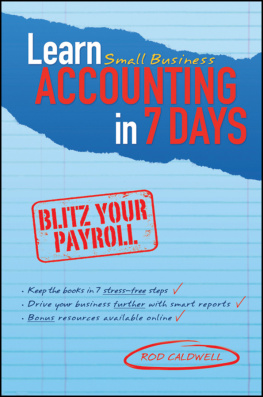



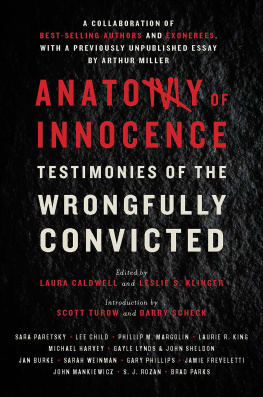

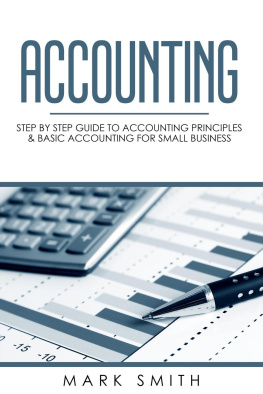
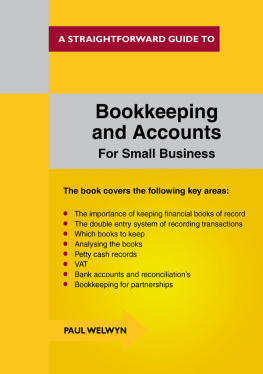
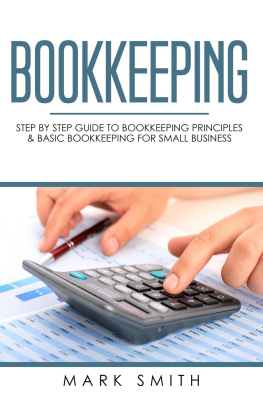
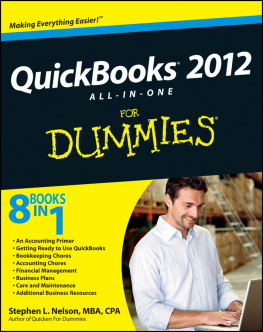
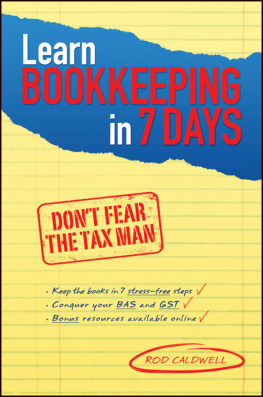
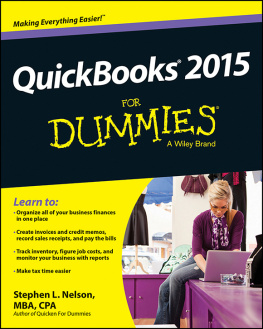
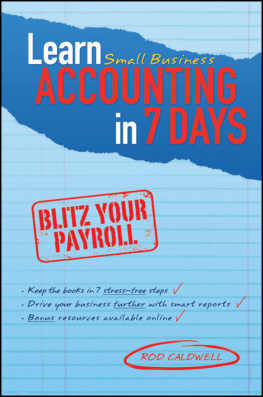
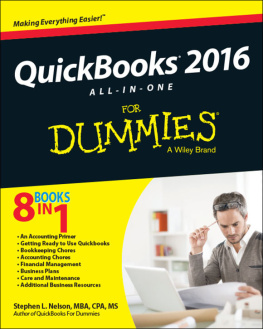
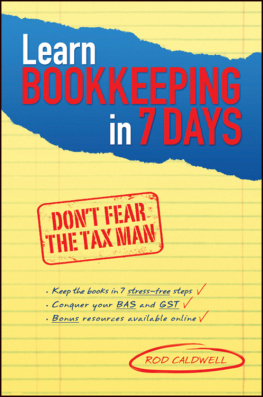
![Jane E. Kelly - Bookkeeping and Accounting All-in-One For Dummies [UK edition]](/uploads/posts/book/80164/thumbs/jane-e-kelly-bookkeeping-and-accounting.jpg)
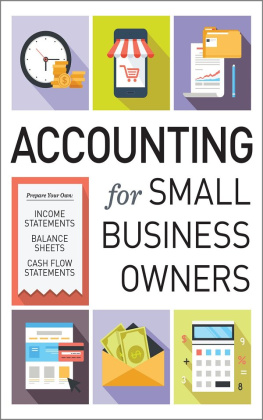




 International Financial Reporting Standards (IFRS): a legally enforceable set of accounting standards that apply to larger businesses.
International Financial Reporting Standards (IFRS): a legally enforceable set of accounting standards that apply to larger businesses.